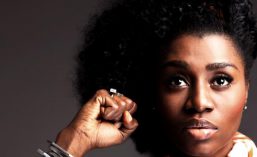1. Money grows on trees– I know a lot of Nigerians don’t think like this but for those who believe this myth, please stop believing it. America has a lot of opportunities, but Nigerians have to come here and work hard for their money. Stop calling a student in the America to send money to you. If they are not working; they don’t have the money. Please try to believe that even if they are working that as a student, they wouldn’t have that much time to commit to work and making money.
2. People who travel aboard are better than you– There are insecure people who come back from America to Nigeria to act high and mighty. Truth is they are nothing and I don’t care how much money they have. Treat them the same. They will try to pretend that they have forgotten their native language, it’s not true. Now, if they have been in America for 15years or more, it is possible to forget the language if they didn’t speak with other natives but they should still be able to remember.
3. There is no poor person or places here– Everywhere you go you will see poor people and places. America is not exempted.
4. Nigerian girls and Nigerian guys are the same from back at home: I mean, they have the same mentality but with a little twist. Nigerian guys here are away from their mothers and family, so they have to learn to cook. You will be surprised how Nigerian guys can cook. The whole thing about woman cooking is slowing going out the window (women still need to know to cook). Nigerian girls here are very independent and not as dependent as they would have been on men in Nigeria.
5. We don’t eat our native food: There are some Nigerians who come back and act like they can’t eat Nigerian food anymore. Don’t mind them. We still eat Nigerian food here. It is a little expensive because we are limited as to where we can get the food stuff but we still eat it. Some places in the states might be different.
More to Come..


